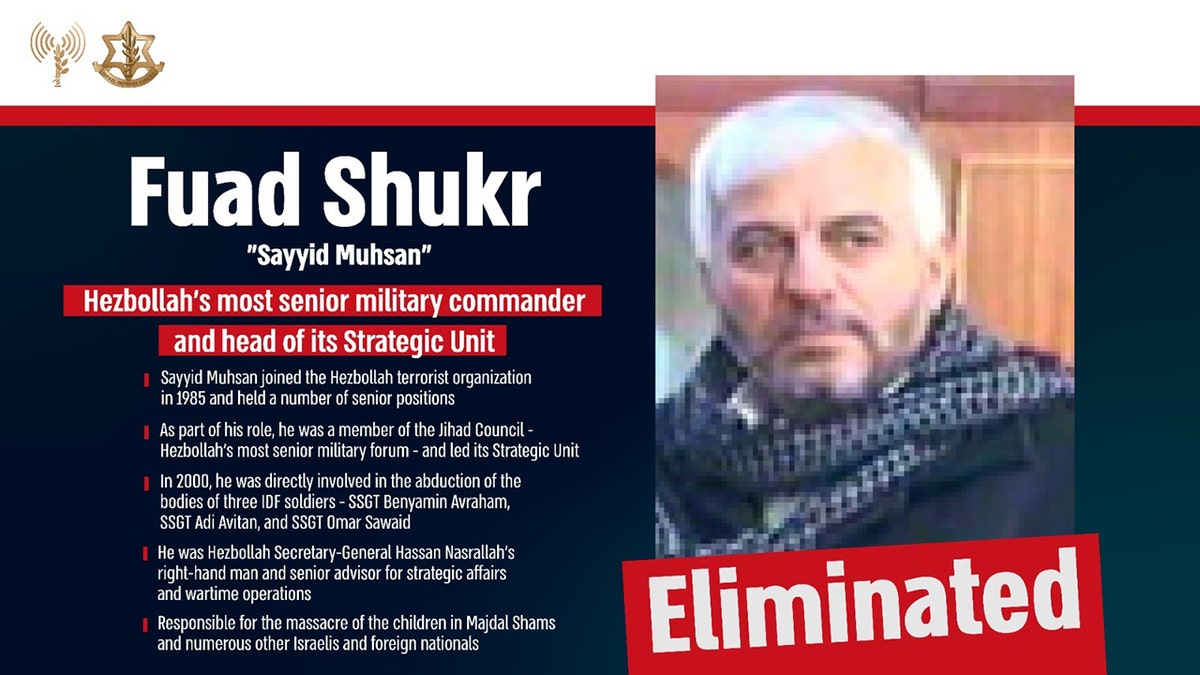
Hamas leader killed in Iran
A suspected Israeli attack inside Iran’s capital city of Tehran killed the political leader of Hamas, Ismail Haniyeh, during a trip Wednesday to mark the inauguration of Iran’s president. Haniyeh was filmed at that inauguration, which featured participants chanting “Death to Israel” and “Death to America.” Less than 12 hours later, Haniyeh was dead.
Haniyeh, 62, had served as chief negotiator for the Iran-backed terrorist group, and his death propels that fraught process into greater uncertainty, and could further prolong Israel’s nearly 10-month war against Hamas in Gaza.
The means of attack isn’t clear just yet, but the Middle East Institute’s Charles Lister described it as “some form of IED attack, targeting [Haniyeh] and his bodyguard.” Iranian Fars news agency described it as the result of a “projectile from the air” that struck at about 2 in the morning.
 The death of Haniyeh comes just hours after the Israeli air force took credit for the killing of a top Hezbollah commander, Fuad Shukr, in an apartment building in southern Beirut Tuesday evening. Two children were also killed in the Israeli strike, which reportedly involved three rockets launched from a drone at around 7:40 p.m. local. More than 70 others were wounded in the attack, according to the Times of Israel.
The death of Haniyeh comes just hours after the Israeli air force took credit for the killing of a top Hezbollah commander, Fuad Shukr, in an apartment building in southern Beirut Tuesday evening. Two children were also killed in the Israeli strike, which reportedly involved three rockets launched from a drone at around 7:40 p.m. local. More than 70 others were wounded in the attack, according to the Times of Israel.  Shukr’s killing is seen as a reprisal for a recent Hezbollah rocket attack that killed nearly a dozen children and teenagers in northern Israel’s Golan Heights on Saturday. (Shukr was also wanted by the U.S. for his alleged “central role” in the 1983 Beirut barracks bombing that killed 241 U.S. and 58 French military personnel along with six civilians.)
Shukr’s killing is seen as a reprisal for a recent Hezbollah rocket attack that killed nearly a dozen children and teenagers in northern Israel’s Golan Heights on Saturday. (Shukr was also wanted by the U.S. for his alleged “central role” in the 1983 Beirut barracks bombing that killed 241 U.S. and 58 French military personnel along with six civilians.)
Who are the remaining top Hamas leaders? The BBC rolled up six of the group’s leading figures, including the deceased Ismail Haniyeh, in a useful feature published Wednesday.
Pentagon reax: “I don’t think [widening regional] war is inevitable,” U.S. Defense Secretary Lloyd Austin told reporters traveling with him during a trip to the Pacific region Wednesday. “I think there’s always room and opportunities for diplomacy, and I’d like to see parties pursue those opportunities,” he said. “And certainly what we’ve seen along the border with Israel over time, that’s been a concern of ours.” But, he continued, “We’re going to do everything we can to make sure that we keep things from trying to get to a broader conflict throughout the region.”
New: The U.S. military attacked Iran-backed militants in Iraq Tuesday evening, striking Kataib Hezbollah fighters in Babil after U.S. officials say the militants were about to attack U.S. forces with a one-way attack drone, al-Monitor reports. The U.S. strike was the first of its kind since February, according to Reuters.
Baghdad reax: “The coalition forces have committed a heinous crime and blatant aggression,” a spokesman for the Iraqi military said on social media. “Such serious and uncalculated transgressions can significantly undermine all efforts, mechanisms, and frameworks of joint security work to combat ISIS…[and] risk dragging Iraq and the entire region into dangerous conflicts and wars. Therefore, we hold the coalition forces fully responsible for these consequences following this flagrant aggression.”
Worth noting: Iraqi officials frequently speak or issue statements in this outraged tone when Iran-backed militias are attacked inside Iraq; but the U.S.-led coalition is still in demand, so Iraqi lawmakers have not yet expelled the coalition in the form of an actual, binding resolution (as opposed to the non-binding sort like what Iraq’s parliament passed in 2020 after the Trump administration assassinated the chief of Iran’s paramilitary forces outside the Baghdad airport).




No comments:
Post a Comment
Note: Only a member of this blog may post a comment.